
Leadership Education in Neurodevelopmental and Related Disabilities (LEND) program
Browse this collection of leadership project posters presented by past LEND cohort trainees.
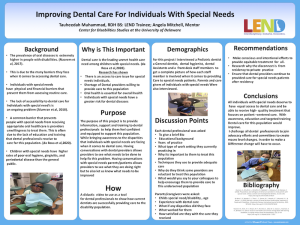
The purpose of this project is to provide information, support and training to dental professionals to help them feel confident and equipped to support this population. While bringing awareness to the disparities that individuals with special needs are facing when it comes to dental care. Having conversations with dental providers allows providers to see what needs to be done to help fix this problem. Having conversations with special needs parents/patients allows providers to see what they are doing right but to also let us know what needs to be improved.
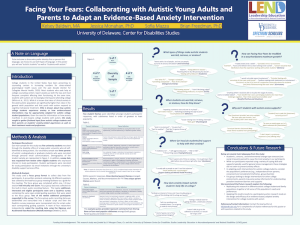
College students in the United States have been presenting to counseling centers in increasing numbers for stress-related psychological health issues over the past decade (Center for Collegiate Mental Health, 2020). Most students who seek help at college counseling centers report anxiety as both the top and most frequent complaint affecting their functioning. At the same time, students with autism are increasingly entering and attending college (White et al., 2011). While it is known that rates of clinical anxiety in the adult autistic population are significantly higher than rates in the general adult population and that youth with autism respond to cognitive behavioral treatment, little is known about how autistic college students experience anxiety or how evidence-based interventions may be appropriately adapted for autistic college student populations. Given the need for information on how anxiety manifests in and impacts college students with autism, this study sought to gather firsthand input from autistic college students and their parents on students’ anxiety-related experiences as well as their treatment needs and preferences.
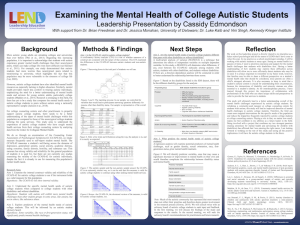
For college counseling centers and other practitioners to properly support autistic college students, there needs to be a better understanding of the types of mental health challenges within this population as compared to those of the neurotypical college students utilizing the same services. This study aims to understand the experiences of autistic college students who have sought mental health services from their college counseling centers by analyzing data from the Center for Collegiate Mental Health.
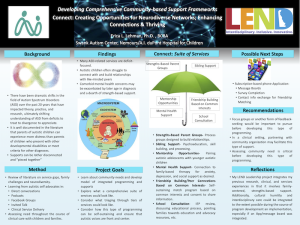
There have been dramatic shifts in the field of Autism Spectrum Disorders (ASD) over the past 20 years that have impacted theory, practice, and research, ultimately shifting understanding of ASD from deficits to treat to divergence to appreciate. It is well documented in the literature that parents of autistic children can experience more distress than parents of children who present with other developmental disabilities or meet criteria for other diagnoses. Supports can be rather disconnected and “pieced together”
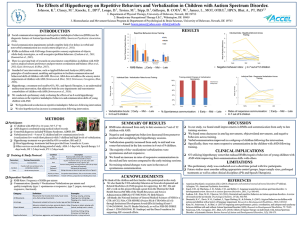
Hippotherapy, a treatment tool used by OTs, PTs, and Speech Therapists, is an understudied multisystem intervention, that addresses both the core impairments and sensorimotor comorbidities of children with ASD (Srinivasan et al., 2018). We conducted a preliminary study evaluating the effects of an 8-week hippotherapy intervention on the repetitive/maladaptive behaviors and communication skills of young children with ASD.
